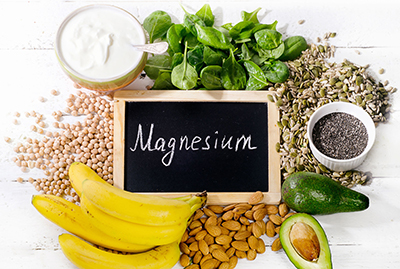Emotional Stress and the Brain: Naturopathic Perspectives
Introduction
We’ve heard it all before: Stress is a normal part of life. Some stress is good for us because it helps us get motivated, be happy, and accomplish our goals. This is often called eustress to distinguish it from what people commonly mean when they say they are stressed (usually feeling bad or overwhelmed). Being “stressed out” certainly has negative connotations. In this article, we’ll discuss some of the underlying mechanisms of stress in the brain as well as what can be done to move towards better health and a happier life.
Emotion Evolution
Emotions generally help us to communicate with our social environment. They are one of the ways that we figure out what’s happening around us, and they help us decide how to behave in various circumstances.[1] They give meaning to what we experience with our senses and in our interactions with others. Why do we have emotions in the first place? Science has suggested that emotions evolved over time. We have a more primitive animal brain and a more evolved brain that helps us engage in higher-level cognitive functions.[2] The more primitive animal brain helps us stay alive, so it can help us feel emotions like fear. As a result, it can sometimes hijack our higher cognitive abilities, even when we don’t want it to. In other words, we may physically feel like we are in a life-threatening situation, where drastic action is required, even though it’s just a boardroom meeting.
The fast pace of the modern world presents us with sensory inputs that can overstimulate the brain. In fact, we are not built for the modern world at all, which makes it that much more difficult to regulate our stressors properly. It can be a significant challenge to maintain a balanced mood or to maintain emotional stability. The myriad of psychological stressors we face can be challenging to process in a calm and collected manner, especially if our primitive brain is taking control. There’s a popular adage among those who study the brain: “Neurons that fire together, wire together.” This means that the longer we are exposed to significant stressors in our life, the stronger our brain will make these unhealthy links. That will make it easier to get back into an unpleasant state and it will be even stronger, leading to the potential for a snowballing effect.
The neurotransmitters that facilitate more optimal psychological health help to produce a positive mental outlook, a balanced perspective, and the ability to cope with everyday stress. They rely on a number of underlying nutrients to get produced and to function properly. These nutrients are present in food, but during periods of heightened stress or during periods of extended stress, the body can get exhausted! Additional supplementation can be helpful to ensure that the body has adequate amounts to meet its needs. We’ll discuss some of these below, as well as other natural strategies.
 Lifestyle Strategies
Lifestyle Strategies
First, let’s discuss lifestyle strategies that can help promote optimal emotional health. Diet, or the selection of foods you feed yourself with, is a top priority. The old cliché “you are what you eat” is literally true. If you’re constantly overdosed on sugar and caffeine, you can bet that you’ll be experiencing more distress. So, consume a balanced diet that contains fruits and vegetables, adequate protein, healthy fats (like olive oil and avocado), and an appropriate amount of calories for your size and activity. You will have created a superb physical foundation for health.
Next is physical activity. You can eat beautifully, but if you are sedentary, you’re not optimizing your health. Physical activity will not only protect you from some physical health problems like heart disease, high blood pressure, or osteoporosis, but it will also help with self-esteem and stress management. Studies have shown that it is likely to reduce depression and anxiety.[3] The guidelines suggest that you aim for 30 minutes of moderate activity, five times a week.
Sleep is the next pillar of the basics of emotional health. You can eat well and exercise, but if you’re not sleeping, your brain will still be miserable. Develop a solid bedtime routine and get adequate amounts. If you typically have trouble sleeping, consider factors that promote sleep: a dark, cool environment; ear plugs; a face mask; and comfortable mattress and pillow.
The last pillar is mindfulness. Mindfulness means paying attention to the present moment and is usually paired with meditation, known as “mindfulness meditation.” Paying attention to the present moment is really the only way to enjoy life. If you’re stuck regretting the past or if you’re constantly worrying about the future, you’ll forget to enjoy the present. At some point, you have to be satisfied with what you have. This takes a tremendous amount of effort, because evolution has built us as problem detectors. We must actively work to change our perspective and have gratitude and appreciation for the experiences we have. I suggest you work with a phone app or with an instructor. If you’ve never done anything like this before, it can be quite frustrating, but with practice, it gets easier. The bonus is that no matter how much you try, studies have shown the benefits seem to endure.
Supplement Options
gamma-Aminobutyric acid (GABA) is a calming neurotransmitter: It helps support a healthy response to emotional stress and may help calm anxious thoughts and intermittent overstimulation and excitation in the brain. It may be helpful for mitigating occasional feelings of anxiousness and facilitating proper focus. ʟ-Glutamine is an amino-acid building block for GABA. Glutamine is a conditionally essential amino acid, meaning that during times when a healthy response to stress is needed, the amount obtained from food may not be sufficient, and supplementation may be beneficial.[4]
 ʟ-Theanine and taurine are amino acids that may aid in bringing calm and relaxation. Taurine is derived from the amino acid cysteine. Tyrosine is the precursor to dopamine, a neurotransmitter associated with learning, attention, and mood. Healthy dopamine levels support the ability to apply focus and attention as well as maintain a positive mental outlook. Tyrosine is also an essential component of thyroid hormone, with the thyroid gland being a key regulator of the body’s metabolism. (Appropriate amounts of thyroid hormone may support steady energy levels.)
ʟ-Theanine and taurine are amino acids that may aid in bringing calm and relaxation. Taurine is derived from the amino acid cysteine. Tyrosine is the precursor to dopamine, a neurotransmitter associated with learning, attention, and mood. Healthy dopamine levels support the ability to apply focus and attention as well as maintain a positive mental outlook. Tyrosine is also an essential component of thyroid hormone, with the thyroid gland being a key regulator of the body’s metabolism. (Appropriate amounts of thyroid hormone may support steady energy levels.)
5-Hydroxytryptophan (5-HTP) is a precursor to the neurotransmitter serotonin, commonly called a “feel-good” neurotransmitter due to its role in promoting a positive mental outlook and a sense of wellbeing. Serotonin, in turn, is the precursor to melatonin, a hormone involved in regulating healthy circadian rhythm (the body’s 24-hour clock) and supporting restful sleep. We’ve already talked about how important sleep is for the brain, so this could be a good option to consider if the basic lifestyle approaches aren’t doing the trick.
Phosphatidylserine is an essential nutrient for brain health and helps to reduce the adverse effects of elevated cortisol, the “fight-or-flight” stress hormone. It also contributes to proper neuron-membrane structure, which facilitates effective cell signaling and response to neurotransmitters and hormones.
The mineral magnesium, one of the body’s most important minerals, is a natural muscle relaxer, which may benefit individuals who face periods of being physically tense from time to time. It can be consumed as a capsule, a pill, a powder, or a liquid. Some herbal supplements can also be useful; for example, chamomile has been shown to promote calmness without impairing memory or causing drowsiness. It can be very easily consumed as a tea in the evening.
 Conclusion
Conclusion
Stress is a part of life, which means we must deal with it somehow! We’ve evolved to work in certain ways and that’s helped us survive, but it hasn’t helped us thrive with our existing lifestyles. We need to work hard—sometimes very hard—to optimize health. This may involve going against the grain. This may involve self-discipline. But it’s worth it. We talked about how the primitive brain can hijack us when it’s not appropriate. We can’t stop it, but we can minimize the damage. The lifestyle basics included eating well, exercising, sleeping well, and being mindful. We then discussed numerous supplemental options that may be suitable add-ons. As always, I encourage you to consult with your health-care provider or naturopathic doctor before starting anything new, so that you know it is safe and appropriate for you.
References
- Traue, H.C. “Emotional inhibition and health,” in International Encyclopedia of the Social & Behavioral Sciences, eds. N.J. Smelser and P.B. Baltes (Oxford: Elsevier Science, 2001), 4449–4454.
- LeDoux, J.E. “Evolution of human emotion: A view through fear.” Progress in Brain Research, Vol. 195 (2012): 431–442.
- MedicineNet. Health Benefits of Physical Activity. · https://www.medicinenet.com/script/main/art.asp?articlekey=10074 · Updated 2004-07-08.
- Kim, S., et al. “GABA and ʟ-theanine mixture decreases sleep latency and improves NREM sleep.” Pharmaceutical Biology, Vol. 57, No. 1 (2019): 65–73.

 Stores
Stores